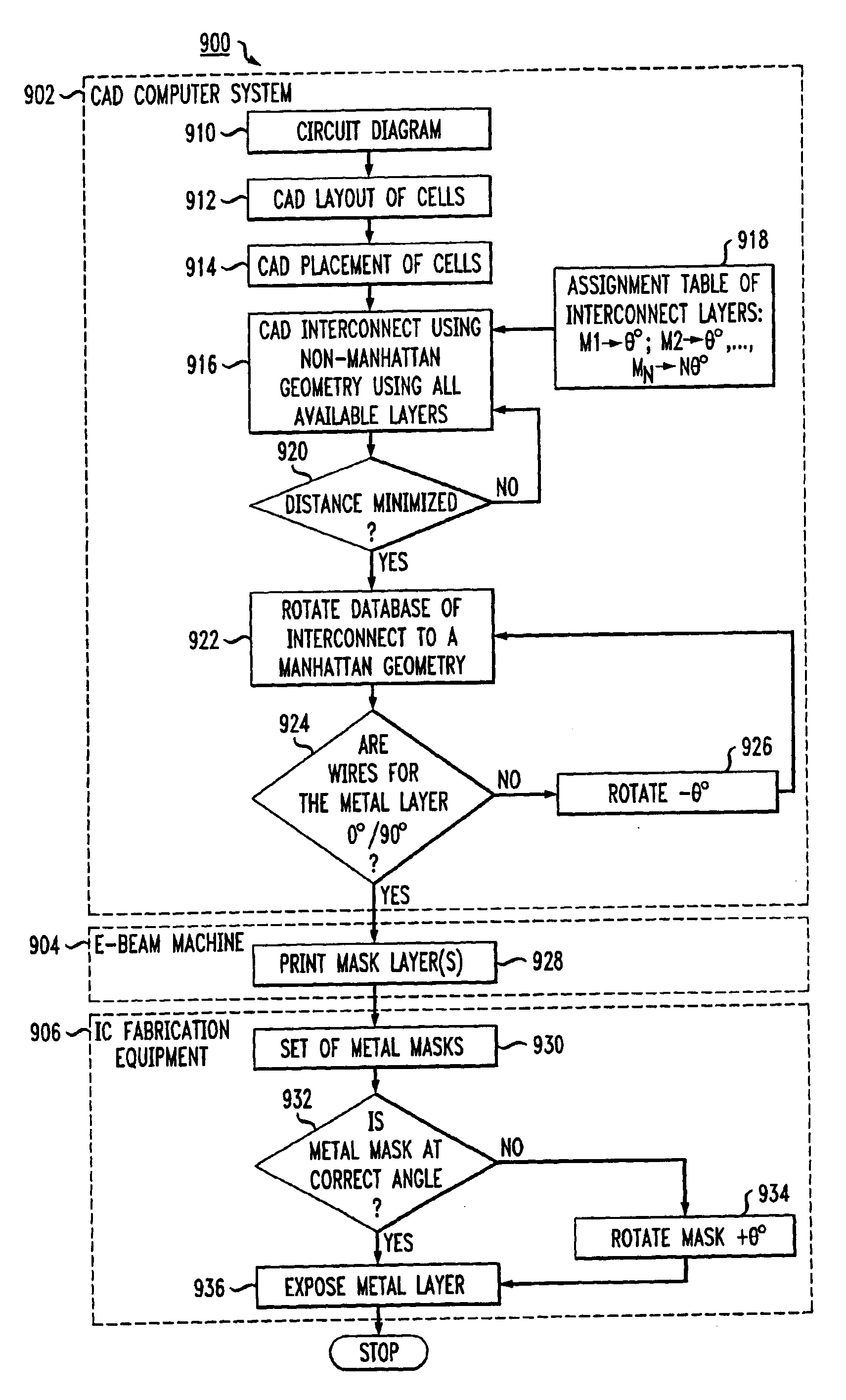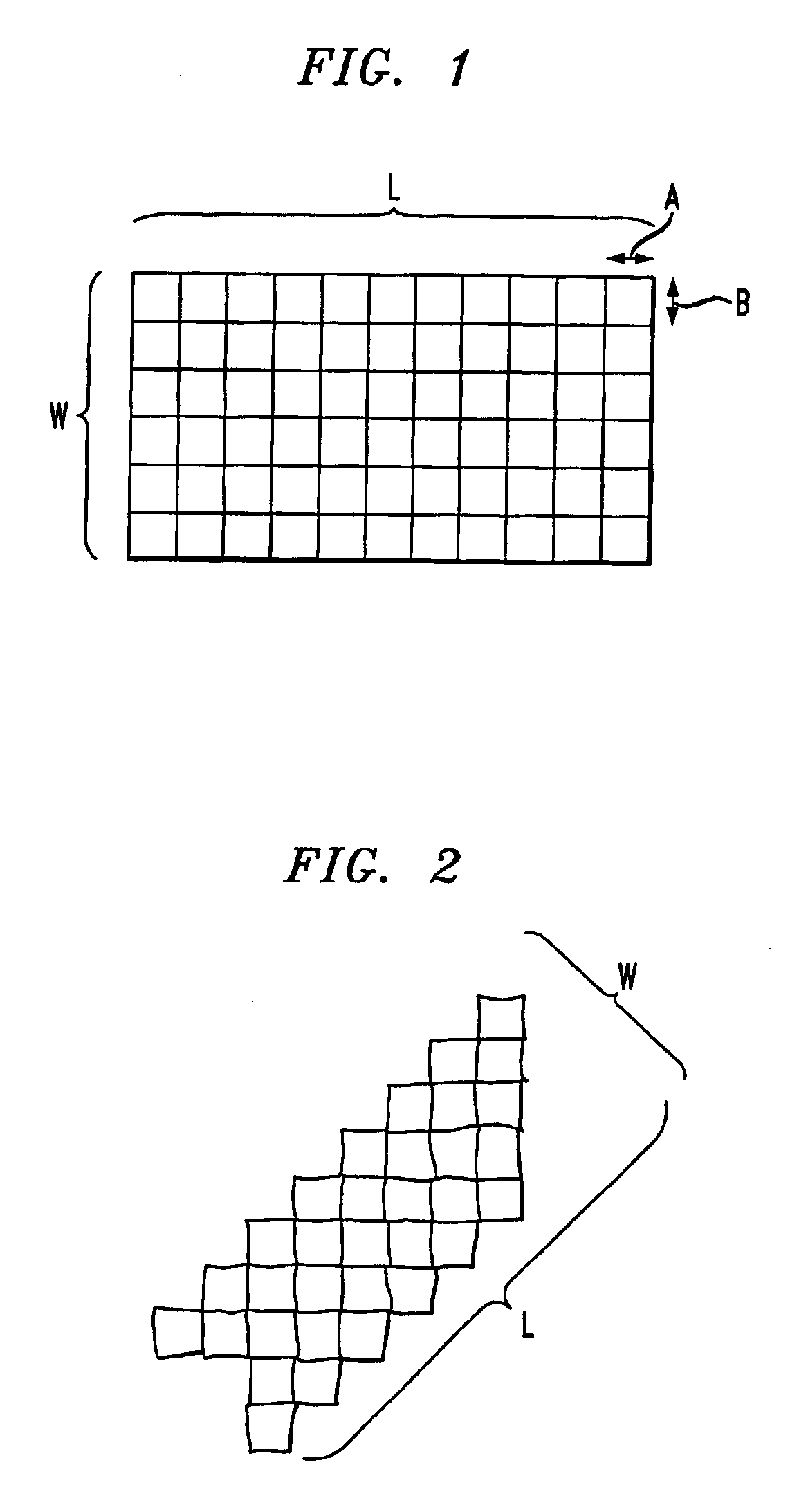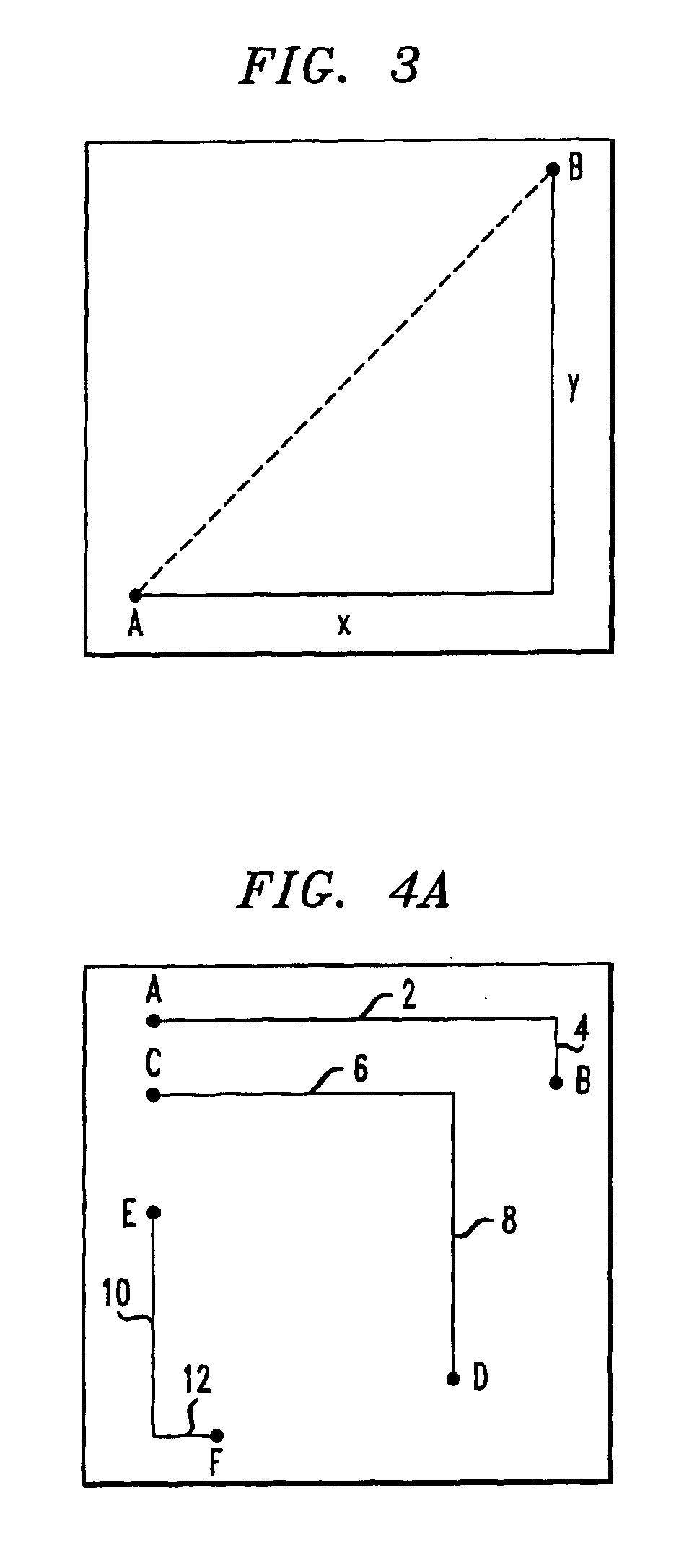Variable rotational assignment of interconnect levels in integrated circuit fabrication
a technology of interconnect level and rotational assignment, which is applied in the field of integrated circuit fabrication, can solve the problems of increasing the database size associated with extraction, increasing the write time, and removing techniques previously realized, and achieve the effect of finer granularity
- Summary
- Abstract
- Description
- Claims
- Application Information
AI Technical Summary
Benefits of technology
Problems solved by technology
Method used
Image
Examples
Embodiment Construction
The present invention will be explained below in the context of an illustrative embodiment employing non-horizontal / non-vertical interconnect wires formed at angles of 45° and / or multiples thereof. However, it is to be understood that the present invention is not so limited. Rather, as will be explained below, the methodologies of the invention may be more generally applied in order to form non-horizontal / non-vertical interconnect wires at various other angles.
An illustrative embodiment of the invention will now be explained. Instead of printing a 45° line in a Manhattan type geometry, the methodology of the present invention provides for assigning 45° lines to a particular layer of the IC being fabricated, for example, the Metal 2 layer (M2). The horizontal and vertical lines are assigned to another layer, for example, the Metal 1 layer (M1). The M2 layer therefore contains the 45° and / or 45° and 135° interconnects used in the formation of the IC. However, at the time the mask is f...
PUM
| Property | Measurement | Unit |
|---|---|---|
| angle | aaaaa | aaaaa |
| angle | aaaaa | aaaaa |
| angle | aaaaa | aaaaa |
Abstract
Description
Claims
Application Information
 Login to View More
Login to View More - R&D
- Intellectual Property
- Life Sciences
- Materials
- Tech Scout
- Unparalleled Data Quality
- Higher Quality Content
- 60% Fewer Hallucinations
Browse by: Latest US Patents, China's latest patents, Technical Efficacy Thesaurus, Application Domain, Technology Topic, Popular Technical Reports.
© 2025 PatSnap. All rights reserved.Legal|Privacy policy|Modern Slavery Act Transparency Statement|Sitemap|About US| Contact US: help@patsnap.com



